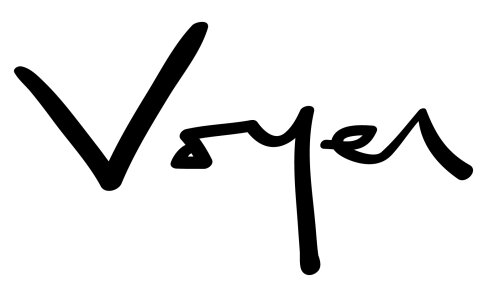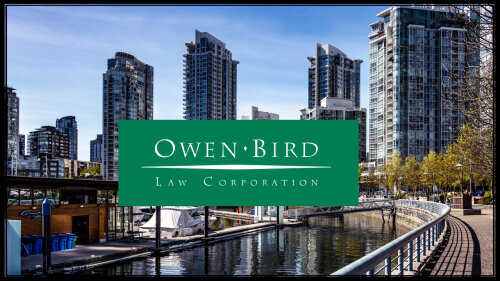Best Sexual Harassment Lawyers in Vancouver
Share your needs with us, get contacted by law firms.
Free. Takes 2 min.
List of the best lawyers in Vancouver, Canada
About Sexual Harassment Law in Vancouver, Canada
In Vancouver, sexual harassment is considered a form of discrimination under the British Columbia Human Rights Code and the Canadian Human Rights Act. It pertains to unwanted sexual behaviours, comments, gestures, or communications that demean, intimidate, or humiliate an individual. It could occur at the workplace, in educational institutions, or in any other places where an interpersonal exchange happens. It is crucial to understand that anyone can be a victim of sexual harassment, regardless of their gender, and that such actions are both ethically and legally unjustifiable.
Why You May Need a Lawyer
Individuals may need legal assistance in cases of sexual harassment for various reasons. One might not be able to raise their voice due to fear of retaliation from the harasser or due to the harasser's influence within the organization, often resulting in power dynamics. Individuals may lack awareness regarding their legal rights or the steps to lodge a complaint. In such instances, a lawyer can guide the victim through the process, providing advice on how to gather necessary evidence, draft complaints, and represent them in court if needed.
Local Laws Overview
In Vancouver, the British Columbia Human Rights Code and the Canadian Human Rights Act protect individuals from sexual harassment. In workplaces, employers have a legal obligation under the Workers Compensation Act, to ensure a safe and secure environment for their employees. In case of non-compliance, victims can lodge complaints with the British Columbia Human Rights Tribunal. This also applies to cases of sexual harassment in educational institutions or housing facilities.
Frequently Asked Questions
What constitutes sexual harassment?
Sexual harassment can encompass a range of behaviours including, but not limited to, unwanted sexual comments, requests for sexual favours, or physical advancements. It's important to note that if any sexual act, comment, or gesture makes you uncomfortable, it could potentially be classified as sexual harassment.
Can men be victims of sexual harassment?
Absolutely. Regardless of gender, anyone can be a victim of sexual harassment.
What should I do if I am sexually harassed at work?
If you experience sexual harassment at work, it is advised to document specific incidents, seek support from a trusted colleague, or report the issue to the human resources department or directly to your supervisor. In case the situation does not improve, it may be necessary to engage a lawyer and consider legal action.
What can I expect from the legal process?
Once you engage a lawyer and decide to take legal action, your lawyer will guide you through the process. This can involve lodging a formal complaint, assisting in investigations, and potentially representing you in court proceedings.
Can I report sexual harassment if it happened a while ago?
Yes, while immediate reporting is encouraged, delayed reporting does not invalidate your experience. It's essential to consult with a lawyer to understand any potential limitations that could affect your case.
Additional Resources
The British Columbia Human Rights Clinic (BCHRC) offers guidance, advice, and assistance in cases of sexual harassment. The VictimLinkBC is another vital resource, providing confidential support services for victims of crime, including sexual harassment. The BC government also maintains a comprehensive online portal featuring guides and resources related to sexual harassment.
Next Steps
If you believe you are a victim of sexual harassment, first, ensure your immediate safety. Then it is advised to document the incidents, including dates, times, locations, and any potential witnesses. Consider reporting the harassment to the relevant authorities within the organization. If your complaint is not adequately addressed, or if you face any form of retaliation, engaging a lawyer could be the next step. Remember, it's essential to take care of your emotional health and seek support from trusted individuals or professionals during this process.
Lawzana helps you find the best lawyers and law firms in Vancouver through a curated and pre-screened list of qualified legal professionals. Our platform offers rankings and detailed profiles of attorneys and law firms, allowing you to compare based on practice areas, including Sexual Harassment, experience, and client feedback.
Each profile includes a description of the firm's areas of practice, client reviews, team members and partners, year of establishment, spoken languages, office locations, contact information, social media presence, and any published articles or resources. Most firms on our platform speak English and are experienced in both local and international legal matters.
Get a quote from top-rated law firms in Vancouver, Canada — quickly, securely, and without unnecessary hassle.
Disclaimer:
The information provided on this page is for general informational purposes only and does not constitute legal advice. While we strive to ensure the accuracy and relevance of the content, legal information may change over time, and interpretations of the law can vary. You should always consult with a qualified legal professional for advice specific to your situation.
We disclaim all liability for actions taken or not taken based on the content of this page. If you believe any information is incorrect or outdated, please contact us, and we will review and update it where appropriate.













